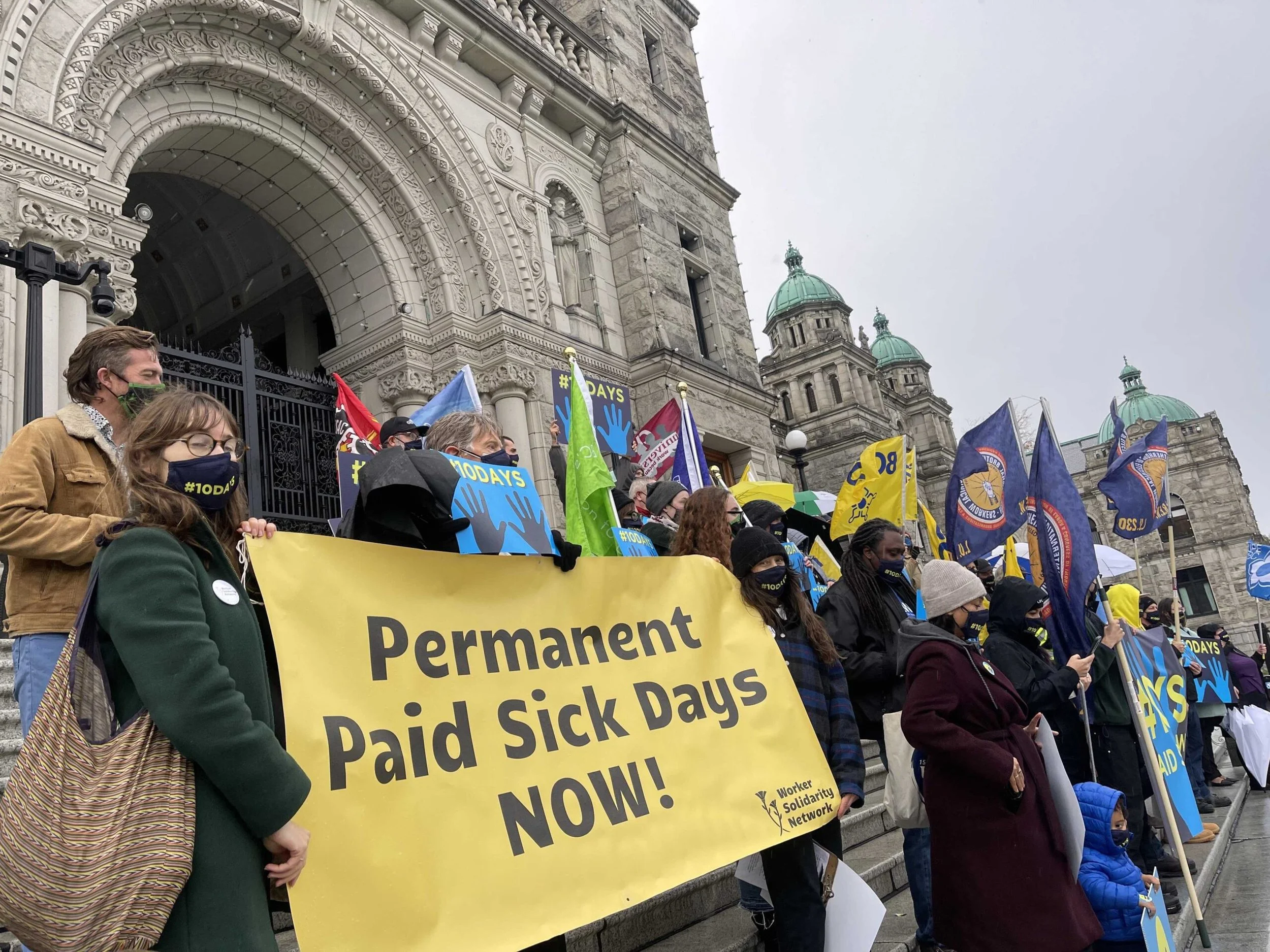Take Action
Stand Up For Migrant Workers Rights
Overtime pay, minimum wage, paid sick days, breaks... these are only some of the things denied to some workers in B.C.
The Employment Standards Act covers the rights of all B.C. workers, but certain exclusions in certain sections of the Act prevent workers like care workers, farm workers, construction workers, gig workers, and more from accessing these basic rights.
These exclusions unfairly target migrant workers, who are a significant population working in these sectors. We rely on these workers for essential services and they deserve basic rights NOW.
Sign Worker Solidarity Network’s petition to demand basic rights for all, to put an end to policies that grant migrant workers fewer rights and hypermarginalized tiers of workers that our government allows employers to exploit.
Living Wage Report 2025
The 2025 Living Wage report is out today. The living wage for Metro Vancouver ($27.85 an hour) is now $10 higher than BC’s minimum wage. And Metro Vancouver is not even the most expensive place in BC—that distinction goes to Whistler ($29.60) and Squamish ($28).
This report—a collaboration between BC Policy Solutions and Living Wage BC —outlines concrete steps the government can take to close the gap between the minimum and the living wage. These measures balance efforts to lift wages with investments that reduce household costs: more affordable housing, universal $10-a-day child care, free transit for youth under 18 and publicly funded pharmacare and mental health services. These aren’t just social programs, they are economic infrastructure that enable workers and their families to thrive.
Basic Income Now
Canada already provides income security for low-income seniors through Old Age Security (OAS) and the Guaranteed Income Supplement (GIS), and also supplements low-income families with children through the Canada Child Benefit (CCB).
We now need a livable Basic Income Guarantee (BIG) for low-income working-age Canadians to ensure everyone has an income sufficient to meet their basic needs, including food security and live with dignity, regardless of their work status.
Five years ago, the PEI legislature developed an all-party agreement to support and work with the federal government to develop and implement a basic income guarantee for PEI.
There is significant potential in the PEI’s proposed a 5-7-year demonstration project, which could advance and inform the development of a national Guaranteed Livable income benefit that is cost shared and administered in collaboration with provincial, territorial, and First Nation governments.
Contact the Vancouver Food Justice Coalition to join our Parliamentary petition calling on the government to advance the PEI basic income demonstration project
Put Food Banks Out Of Business
The Put Food Banks Out Of Business campaign is a group of food bank and food policy leaders urging all candidates and political parties to include a guaranteed liveable basic income in their party platform in the upcoming federal election.
Governments have been failing Canadians and food banks have been doing our best to pick up the slack. But we shouldn’t be here. The food security of people in Canada should not rest on the shoulders of private charities and individual donors.
A guaranteed liveable basic income is the single most impactful policy for alleviating food insecurity. People are food insecure because they don’t have enough money. Hunger is a result of poverty.




